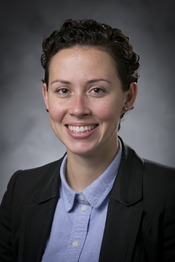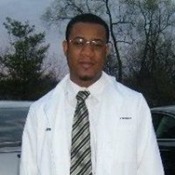Program Information
AAPM Medical Physics Student Meeting: Medical Billing and Regulations: Everything You Always Wanted To Know, But Were Too Afraid To Ask

H Wu
M Abogunde
A Rodrigues
J Stanford
H Wu1*, M Abogunde2*, A Rodrigues3*, J Stanford4*, (1) Willis-Knighton Medical Center, Shreveport, LA, (2) U.S. Nuclear Regulatory Commission, Philadelphia, PA, (3) Duke University Medical Center, Durham, NC, (4) University of Mississippi Med. Center, Jackson, MS
Presentations
SU-A-210-0 (Sunday, July 12, 2015) 9:30 AM - 11:00 AM Room: 210
The purpose of this student annual meeting is to address topics that are becoming more relevant to medical physicists, but are not frequently addressed, especially for students and trainees just entering the field. The talk is divided into two parts: medical billing and regulations.
Hsinshun Wu – Why should we learn radiation oncology billing?
Many medical physicists do not like to be involved with medical billing or coding during their career. They believe billing is not their responsibility and sometimes they even refuse to participate in the billing process if given the chance. This presentation will talk about a physicist’s long career and share his own experience that knowing medical billing is not only important and necessary for every young medical physicist, but that good billing knowledge could provide a valuable contribution to his/her medical physics development.
Learning Objectives:
1. The audience will learn the basic definition of Current Procedural Terminology (CPT) codes performed in a Radiation Oncology Department.
2. Understand the differences between hospital coding and physician-based or freestanding coding.
3. Apply proper CPT coding for each Radiation Oncology procedure.
4. Each procedure with its specific CPT code will be discussed in detail.
5. The talk will focus on the process of care and use of actual workflow to understand each CPT code.
6. Example coding of a typical Radiation Oncology procedure.
7. Special procedure coding such as brachytherapy, proton therapy, radiosurgery, and SBRT.
Maryann Abogunde – Medical physics opportunities at the Nuclear Regulatory Commission (NRC)
The NRC’s responsibilities include the regulation of medical uses of byproduct (radioactive) materials and oversight of medical use end-users (licensees) through a combination of regulatory requirements, licensing, safety oversight including inspection and enforcement, operational experience evaluation, and regulatory support activities. This presentation will explore the career options for medical physicists in the NRC, how the NRC interacts with clinical medical physicists, and a physicist's experience as a regulator.
Learning Objectives:
1. Explore non-clinical career pathways for medical physics students and trainees at the Nuclear Regulatory Commission.
2. Overview of NRC medical applications and medical use regulations.
3. Understand the skills needed for physicists as regulators.
Funding Support, Disclosures, and Conflict of Interest: Abogunde is funded to attend the meeting by her employer, the NRC.
Contact Email:

